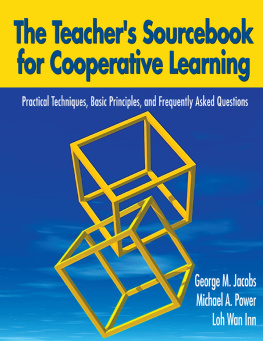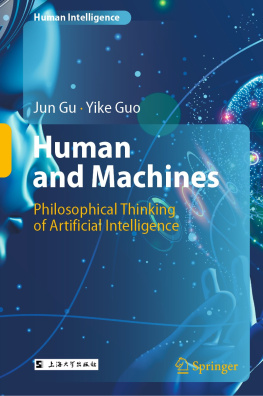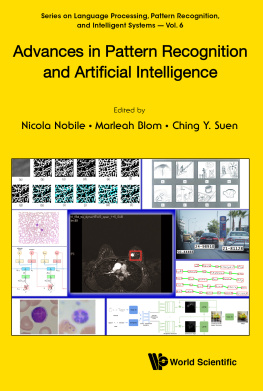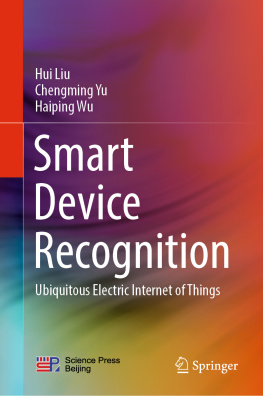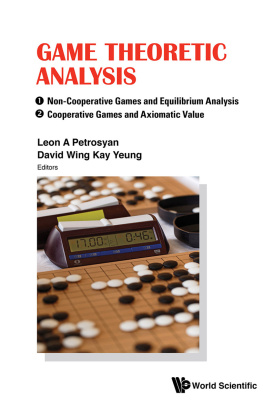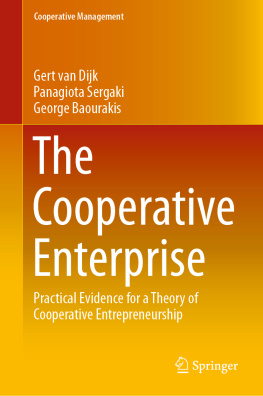Zutao YU - Artificial Assemblies with Cooperative DNA Recognition
Here you can read online Zutao YU - Artificial Assemblies with Cooperative DNA Recognition full text of the book (entire story) in english for free. Download pdf and epub, get meaning, cover and reviews about this ebook. year: 2020, publisher: Springer Singapore, genre: Home and family. Description of the work, (preface) as well as reviews are available. Best literature library LitArk.com created for fans of good reading and offers a wide selection of genres:
Romance novel
Science fiction
Adventure
Detective
Science
History
Home and family
Prose
Art
Politics
Computer
Non-fiction
Religion
Business
Children
Humor
Choose a favorite category and find really read worthwhile books. Enjoy immersion in the world of imagination, feel the emotions of the characters or learn something new for yourself, make an fascinating discovery.
- Book:Artificial Assemblies with Cooperative DNA Recognition
- Author:
- Publisher:Springer Singapore
- Genre:
- Year:2020
- Rating:4 / 5
- Favourites:Add to favourites
- Your mark:
- 80
- 1
- 2
- 3
- 4
- 5
Artificial Assemblies with Cooperative DNA Recognition: summary, description and annotation
We offer to read an annotation, description, summary or preface (depends on what the author of the book "Artificial Assemblies with Cooperative DNA Recognition" wrote himself). If you haven't found the necessary information about the book — write in the comments, we will try to find it.
Zutao YU: author's other books
Who wrote Artificial Assemblies with Cooperative DNA Recognition? Find out the surname, the name of the author of the book and a list of all author's works by series.
Artificial Assemblies with Cooperative DNA Recognition — read online for free the complete book (whole text) full work
Below is the text of the book, divided by pages. System saving the place of the last page read, allows you to conveniently read the book "Artificial Assemblies with Cooperative DNA Recognition" online for free, without having to search again every time where you left off. Put a bookmark, and you can go to the page where you finished reading at any time.
Font size:
Interval:
Bookmark:
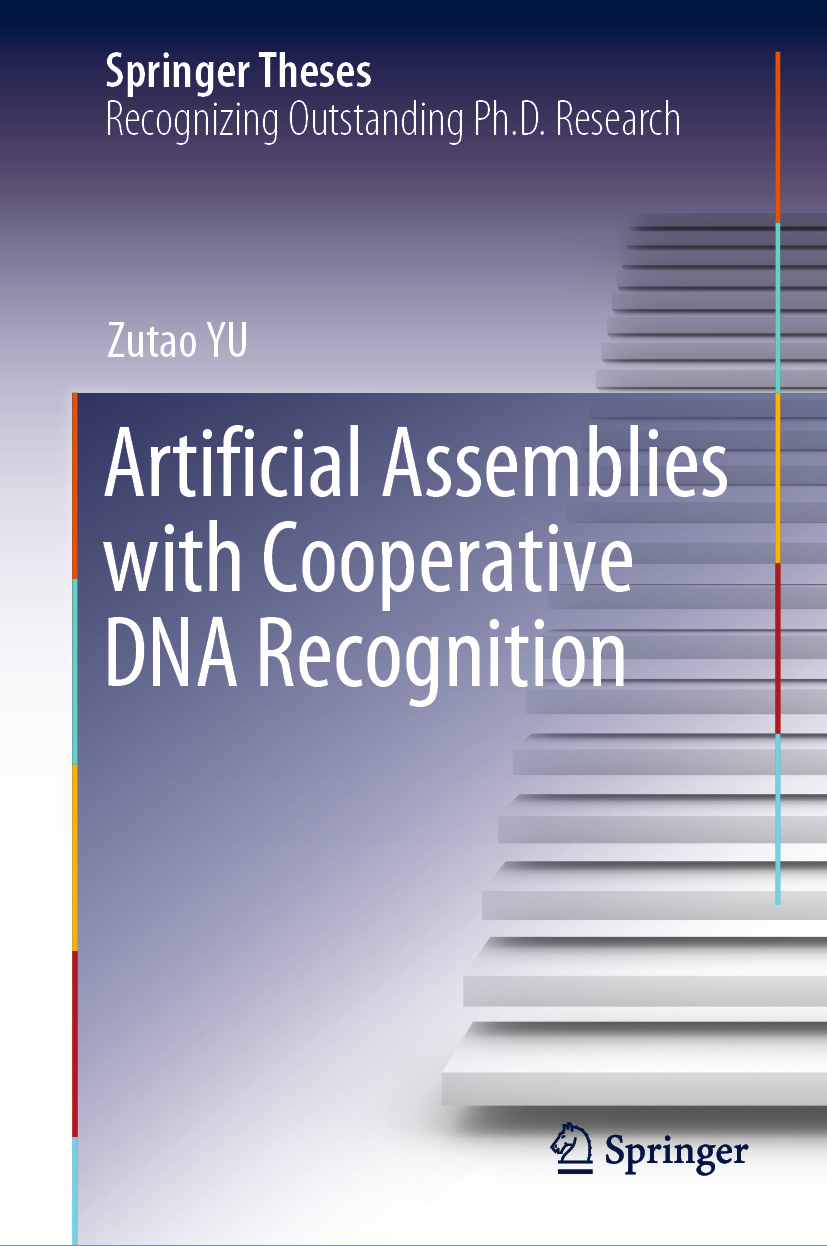
Aims and Scope
The series Springer Theses brings together a selection of the very best Ph.D. theses from around the world and across the physical sciences. Nominated and endorsed by two recognized specialists, each published volume has been selected for its scientific excellence and the high impact of its contents for the pertinent field of research. For greater accessibility to non-specialists, the published versions include an extended introduction, as well as a foreword by the students supervisor explaining the special relevance of the work for the field. As a whole, the series will provide a valuable resource both for newcomers to the research fields described, and for other scientists seeking detailed background information on special questions. Finally, it provides an accredited documentation of the valuable contributions made by todays younger generation of scientists.
They must be written in good English.
The topic should fall within the confines of Chemistry, Physics, Earth Sciences, Engineering and related interdisciplinary fields such as Materials, Nanoscience, Chemical Engineering, Complex Systems and Biophysics.
The work reported in the thesis must represent a significant scientific advance.
If the thesis includes previously published material, permission to reproduce this must be gained from the respective copyright holder.
They must have been examined and passed during the 12 months prior to nomination.
Each thesis should include a foreword by the supervisor outlining the significance of its content.
The theses should have a clearly defined structure including an introduction accessible to scientists not expert in that particular field.
They must be written in good English.
The topic should fall within the confines of Chemistry, Physics, Earth Sciences, Engineering and related interdisciplinary fields such as Materials, Nanoscience, Chemical Engineering, Complex Systems and Biophysics.
The work reported in the thesis must represent a significant scientific advance.
If the thesis includes previously published material, permission to reproduce this must be gained from the respective copyright holder.
They must have been examined and passed during the 12 months prior to nomination.
Each thesis should include a foreword by the supervisor outlining the significance of its content.
The theses should have a clearly defined structure including an introduction accessible to scientists not expert in that particular field.

This Springer imprint is published by the registered company Springer Nature Singapore Pte Ltd.
The registered company address is: 152 Beach Road, #21-01/04 Gateway East, Singapore 189721, Singapore
This book is lovingly and sincerely dedicated to
My love and spiritual partner
Dr. Shiqi Ye
Who is always supporting, helping, and
standing by me.
Synthetic DNA binder is a long-lasting attractive topic, but few progresses achieved. In this thesis by Dr. Zutao YU, the author makes an endeavor to understand the crucial limitations of synthetic DNA binding systems and construct novel cooperative DNA binding assemblies.
In Chap., the author systematically reviews the engineering of synthetic PIPs-based DNA binding assembly. The author first separately describes the design of three structural domains (DBD, CID, and FD) and then summarizes the representative artificial assemblies from a combination of these domains. The author also points out the long-standing limitations of PIPs and provides thoughtful comments for future study.
Chaptersintroduce two exemplary cooperative DNA binding systems PIP-HoGu and PIP-NaCo, respectively, in order to overcome the issues of off-target rate and un-flexible binding mode. The CID assures the synergistic binding of two PIPs at the nearby DNA sites and with a flexible gap distance between two PIPs. PIP-NaCo system utilizes left-handed PNA as CID that exhibits orthogonality to cellular nucleic acids and tunability of cooperation. In the in vitro and cell study, both PIP-HoGu and PIP-NaCo systems demonstrate advancement in sequence selectivity and flexible binding.
In Chap., the author takes a brave step forward to construct an advanced genetic switch termed ePIP-HoGu, by installing epigenetic functionality into cooperative DNA binding system and demonstrates its effectiveness in an in vitro HAT assay.
This thesis clarifies the engineering of synthetic DNA binding systems and advanced genetic switches. Significantly, the sequential development of cooperative DNA binding system and epigenetic advanced DNA binding system will fast track the exploration and optimization of the biological study of synthetic DNA binding systems.
First and foremost, I would like to express my sincere admiration to my supervisor, Prof. Hiroshi Sugiyama. His deep insights trained me at various stages of my research and make my work productive and stimulating. I am indebted toward him for his generosity, selfless support and especially for the excellent example and patience that he has provided to me.
Font size:
Interval:
Bookmark:
Similar books «Artificial Assemblies with Cooperative DNA Recognition»
Look at similar books to Artificial Assemblies with Cooperative DNA Recognition. We have selected literature similar in name and meaning in the hope of providing readers with more options to find new, interesting, not yet read works.
Discussion, reviews of the book Artificial Assemblies with Cooperative DNA Recognition and just readers' own opinions. Leave your comments, write what you think about the work, its meaning or the main characters. Specify what exactly you liked and what you didn't like, and why you think so.


